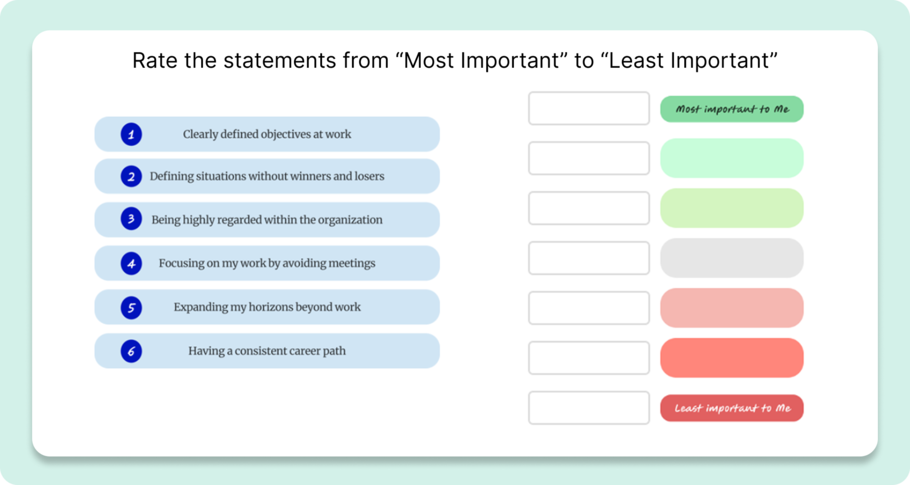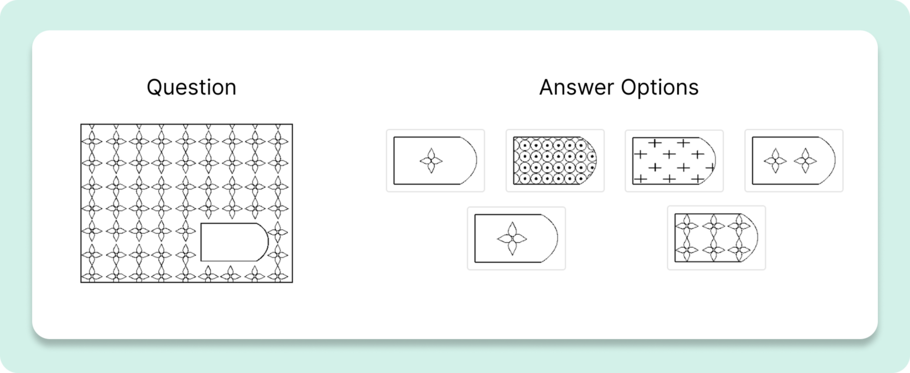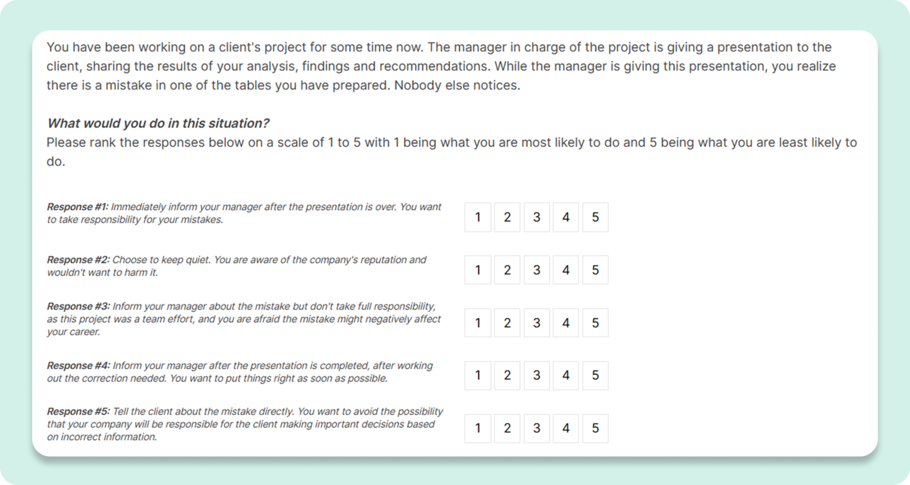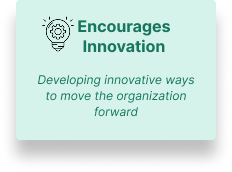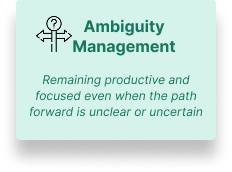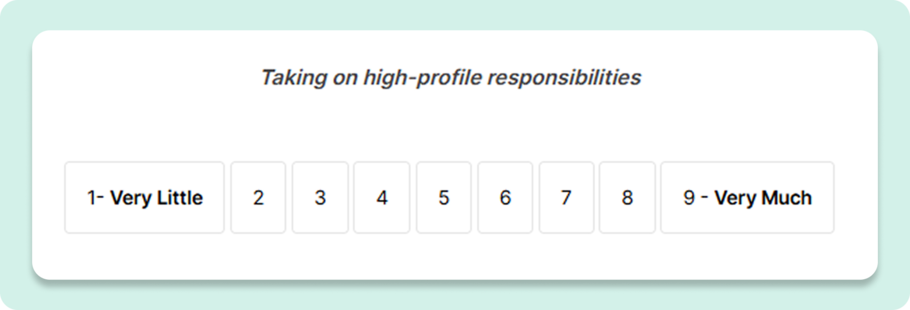Last updated: Jan 13th, 2026
If you have recently been asked to take the Korn Ferry Four Dimensions (KF4D) or the Korn Ferry Assessment of Leadership Potential (KFALP), it's safe to assume you are either being considered for a leadership position or your employer wants to know if you possess the potential to occupy one in the future.
How can leadership be measured, and what types oc challenges do these assessments present? Let's unpack.
About the Korn Ferry Leadership Tests
What is a Korn Ferry Leadership Assessment?
Korn Ferry is a long-standing player in the field of occupational psychometric testing. Their exams and assessments are often hailed as reliable and research-backed, partly thanks to a system which allows employers to choose parameters they consider important.
Korn Ferry's most well-known assessments gauge leadership potential and management skills. However, the company also offers cognitive ability exams through its subsidiary, Talent Q.
On this page, we'll provide an overview of two common KF Leadership Tests: KFALP and KF4D.
Tip:
If you're taking one of the leadership assessments together with a Talent Q cognitive exam, check out our all-inclusive Korn Ferry prep course.

Korn Ferry Assessment of Leadership Potential - KFALP
The Korn Ferry Assessment of Leadership Potential (KFALP) is a tool companies use to see how far you could go as a leader in the future, not just how well you’re doing in your job right now. It looks beyond your current role and tries to understand your long-term potential to handle bigger, more complex leadership challenges.
Instead of asking “Are you ready for a leadership job today?”, KFALP is more about “What could you grow into over time?”
To do this, the test looks at seven important areas proven by research to be related to advancement in leadership roles. Here's an official Korn Ferry KFALP figure explaining their KFALP Leadership Model, which they call "the seven signposts":

As there can be different types of leaders, the way you rank on each of these dimensions can be seen as an indication of your leadership style.
KFALP doesn’t just look at your strengths. It also pays attention to possible derailers – patterns of behavior (like being very volatile, overly controlling, or closed to feedback) that might hold you back in more senior roles. By understanding both your strengths and potential risks, the assessment provides a fuller picture of your leadership potential and what you might need to develop going forward.
This test can include three sections:
Tip:
Being genuine is always a good idea. However, sincerity in this context is not the same as vulnerability or the radical honesty you should practice with your loved ones. You should remember that the questionnaire is asking you about your work-self. When answering, draw on your experiences and self-knowledge in a work context. Don't answer based on your behavior with friends or at home - that misses the point of the exam.
The Korn Ferry Leadership Assessment is often taken alongside an adapted version of the Talent Q Elements/Aspects tests. They can give your potential employers a full image of the managerial candidate's cognitive abilities, personality traits, and behavioral attitude.
Learn more with our KFALP / KF4D Pack >>
Or, if you're taking a leadership exam along with Talent Q, learn about this pack >>
Korn Ferry Four Dimensions - KF4D
Korn Ferry Four Dimensions of Leadership (KF4D) is a leadership assessment tool that measures an individual's ability to lead in four dimensions:
- Drivers and Traits, which aims to measure leadership potential in terms of your personality traits, what drives you to actions, etc;
- Competencies and Experiences, which measures your skills and expertise based on your experience.
Here is a diagram of Korn Ferry's Four Dimensions of Leadership and Talent (Taken from Korn Ferry's website

Whereas the KFALP is all about assessing whether you possess the potential to be put on the path to eventual leadership, the KF4D is designed to test you for a specific, currently open leadership role.
This means it's especially important to allow the employer to describe the kind of success profile they are in search of.
Korn Ferry allows companies to customize their requirements for each position and use the test to assess these specific requirements. For instance, a Marketing Manager might need to demonstrate creativity and analytical skills, while a Customer Success Manager focuses on strong interpersonal skills and prioritizing. The KF4D allows companies to evaluate candidates based on the skills and traits they deem most important for each role.
This test includes two sections: Job Profile and Individual Exercises
FAQ
Korn Ferry is a management consulting firm and part of Hay Group. Since 2014, Talent Q tests have been administered by Korn Ferry. If so, since the term Talent Q tests mainly refer to the cognitive aptitude tests provided by Korn Ferry, while the term Korn Ferry tests refers to their behavioural and leadership tests.
Usually, it takes 3-4 weeks to see the test's results. You should return or log in to your Korn Ferry Assessment Dashboard (homepage). Any outstandingassessments are listed in Section 2 of the Dashboard. If nothing is listed here, you have completed all assessments assigned for this assessment campaign. All completed assessments are listed in Section 3 of the Dashboard.
The Korn Ferry Leadership assessments, personality tests and psychometric tests do not have a pass or fail mark. Instead, it is up to the individual employer to set the scoring criteria.
The advice that states that “there are no right or wrong answers on the personality test” is misleading and can cause test-takers to fail. An example of this can be found when answering the question: “Do you like working with people?" - If you are applying for a service position and you respond with a negative answer, you may not be considered for the job since this answer shows employers that you aren’t the right fit.
Being consistent is very important when taking a personality assessment test. On personality tests, you may be asked similar questions that are worded differently. If you answer these similar questions differently, it will be reflected in your results. For instance, it could appear to assessors as if you did not answer both questions completelyhonestly, which may result in you not getting the job. However, being consistent is not something you need to focus on, as it is not measured. It is a problem only if you significantly contradict yourself; for example, answering "agree" to "I'm never late" and "I have a tendency to be late to some meeting." At times during the test, you may encounter similar statements but not agree or disagree with all of them; in this case, it is fine to answer differently. For example, answering "agree" to both "I prefer working with people rather than working alone" and "Sometimes, I need some alone time."
Although you cannot study for a personality test, you can pass by preparing yourself beforehand, developing optimized answers. Get tips on how to take the personality test.
Similar Personality Tests
The following personality tests are often used to select leadership and senior positions:
Caliper Assessment | Free Caliper Test Sample
PI Behavioral Assessment | Free PI Behavioral Test Sample
Hogan Assessment | Free Hogan Test Sample
Aiming for a managerial position? Learn everything you need with our Leadership Assessment Test guide.

